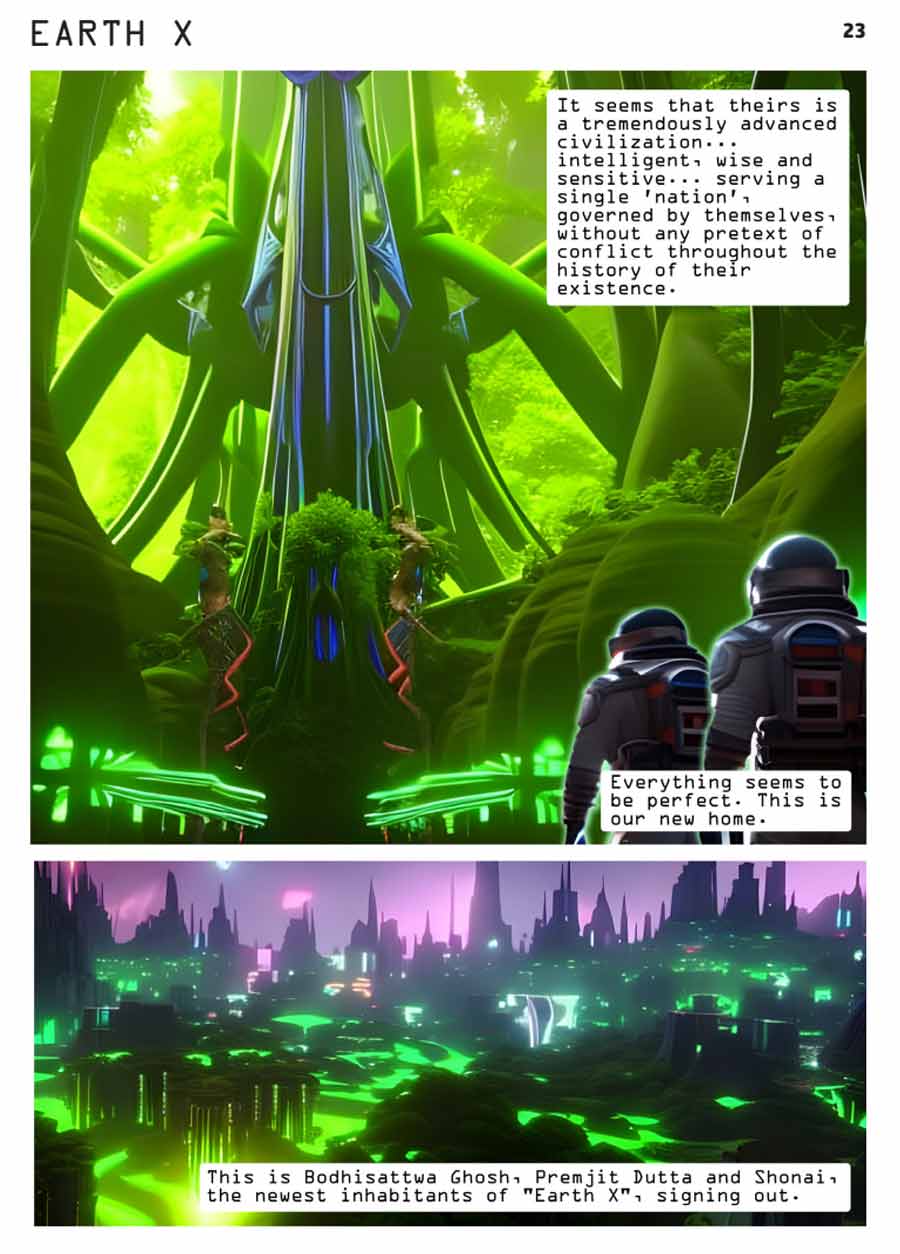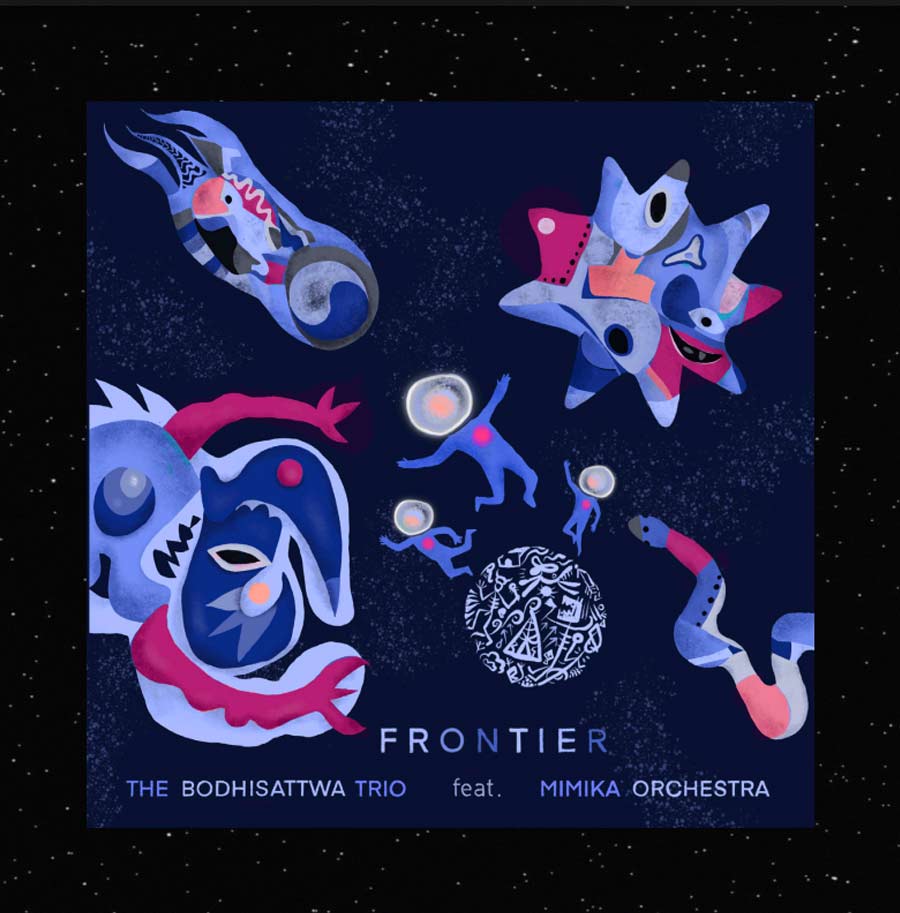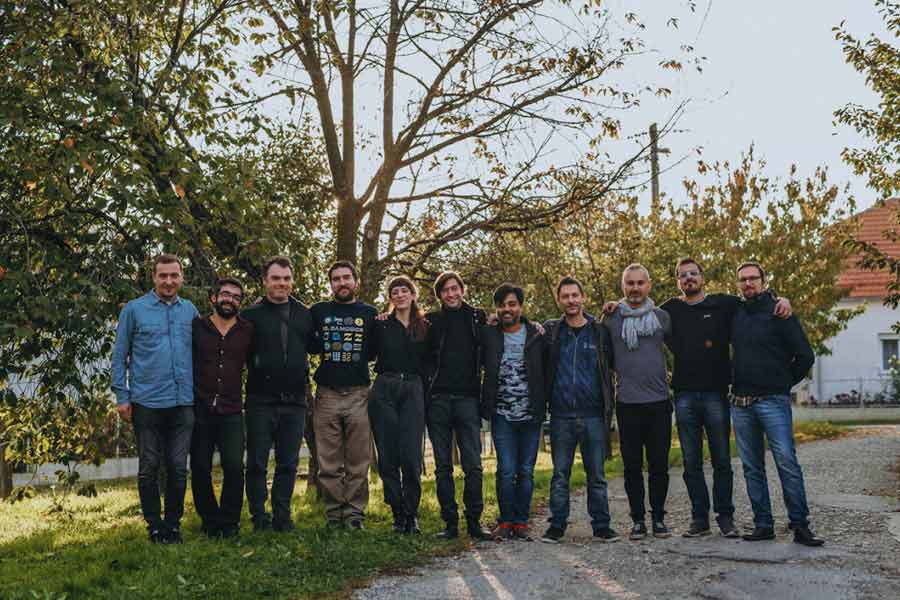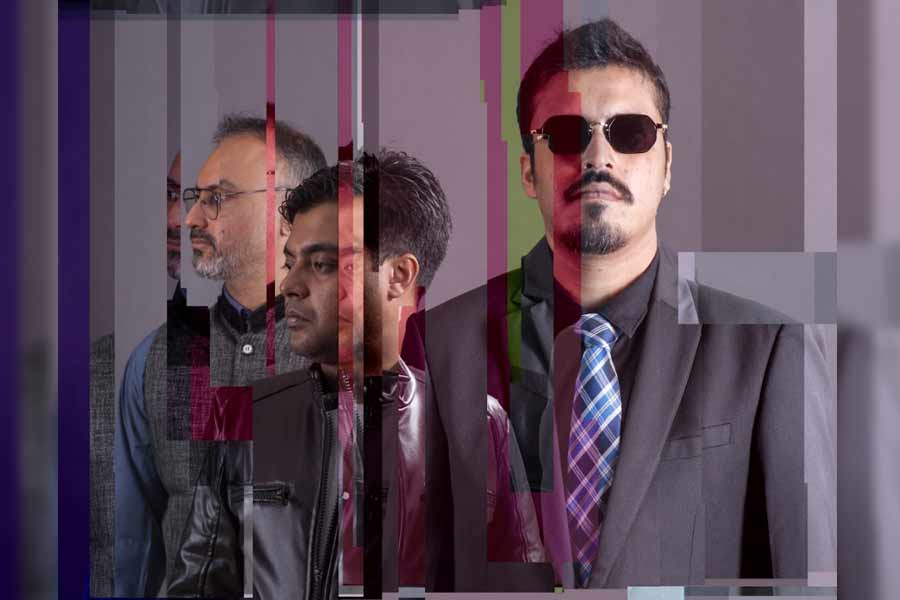Bodhisattwa Trio, the Kolkata/Delhi jazz-fusion band with a penchant for breaking boundaries, has just released its fourth album, Frontier. It is in collaboration with Mimika Orchestra from Zagreb Croatia and is intended as a musical voyage through space and time, a fascinating concept elaborated in a comic book which contains a QR code that will lead the listener to a link to download the entire album in loss-less audio.
The music is grandiose, drawing influences from traditions of jazz, western and Indian classical music, even while staying rooted to rock guitar, bass and drums. The orchestra adds symphonic heft to the larger than life canvas.
The band comprising Bodhisattwa Ghosh (guitar), Shonai (keyboards, synth bass) and Premjit Dutta (drums) was joined by composer, arranger and conductor Mak Murtic of Mimika Orchestra for a conversation with The TelegraphOnline. They opened up on the idea, the comic book accompanying the album and a lot more. Excerpts
The comic book makes things clear that the music of the album is intended as a conversation between the three astronauts (the trio) and the forces of outer space (Mimika Orchestra). So did the comic first and then the music?
Bodhi: That’s a great question. Yes, the comic did come first. I was particularly disgusted at the way humanity was behaving. And I thought we don’t deserve this planet. That’s why I thought of a planet, Earth X, which is the very antithesis of earth. We thought of ourselves as three astronauts who somehow escape during the nuclear apocalypse. We travel through multiple universes or multiverses and we land on this planet which is a utopia.
And the music?
Bodhi: To envision a sound that grand, we discussed amongst ourselves and agreed that this could not be done with three persons. We need another element. If we are the astronauts there has to be the cosmic forces and the nebula and the Big Bang and all of this. So that’s why I thought of an orchestra. And when I heard Mimika Orchestra, I realised, bingo, this is exactly what I was looking for.

A page from the comic book. Picture: Shan Bhattacharya
And the recording?
Bodhi: When I was hearing the mixes at various stages, I was thinking to myself that this should be a 73-minute film on Netflix. But I don’t have the money for that. Who has? So, I talked to my good friend Shan (Bhattacharya) who is a photographer, science fiction freak, and listens to great music _ you know, bands from behind the 70s-80s iron curtain. I gave him this music and asked him to make a comic book. He used AI-generated software to write the panels and told me to write the text since it was my vision. We will be printing it out and selling them at concerts as a 34-page graphic novella.
Why comic book?
Bodhi: The comic book idea came to me because we don’t have vinyl _ it’s too expensive. And we don’t have CDs because it’s useless. The comic, I thought, would be a great idea to engage with the audience. At the back you have a QR code to download the lossless audio.
After you decided on Mimika Orchestra, how did you introduce the concept to the conductor?
Bodhi: I sent Mak some recordings, one of a rehearsal here and another in Bangladesh. We also started sending him some information and he started writing his horn charts and then sending it to us as midi files. That kind of back and forth happened. Shonai wrote all the charts and sent it to Mak so that he could have a clearer picture.
How did Mimika Orchestra approach the project? After all, communicating over email and midi files is not the best way to create music.
Mak: The concept of the album is about building an identity and then destroying it. So it was very interesting for me just to do it as a kind of story-boarded album with ideas coming from both of spectrums, which is contemporary jazz, rock and our traditional musical heritage, to try and do something that is not necessarily a reflection of ‘western (music)’
What about the line-up?
Bodhi: Mimika is a 19-piece, 20-member orchestra. We had to be realistic, keeping in mind the budget and recording dates. We already have a pianist and bass player rolled into one, a guitarist and drummer. So Mak had to be picky about the instruments he wanted.
I did not hear any string section. Was that a conscious choice?
Mak: Mimika Orchestra doesn’t have a string section. It is made up of traditional instruments from Croatia like saxophones, flutes, oboes and brass, and of course percussion and electronics. I could have set up a string section with people. But I thought it would be nice to have something that was viable for touring.

The album cover. Picture: Zvonimir Haramija Hans
Tell us about the experience of transcribing the music to ensure a channel of communication with the orchestra.
Shonai: Basically, I was the victim. They exploit me, first with the bass parts and then with the piano part. And then they pushed me to write it all down (all laugh).
Is it a challenge playing the keyboard bass and piano in a live situation?
Shonai: Yes, challenging indeed. Each of the band members are not just playing their own parts, but there are a lot of effects involved with different time signatures, etc. It is quite tricky as you’ve got to be pretty sure that the delay is in the right time.
And the drums? After all, this was unchartered territory.
Premjit: I would say that the Bodhisattwa Trio is all about unchartered territory. Every album has been an unchartered territory. When Bodhi I started doing this, we were both working in active bands… But when we decided to do this together 11 years back, we agreed to only do things we haven’t done before. So, this fourth album is not a surprise for me. Bodhi is a person who really likes to push it and he does it well. I am glad that we have been on this journey together for so long. The only thumb rule for this band was being honest. And that’s what we have tried to do in all four of our albums.
I found myself rooting for the three astronauts. I wanted them to make it, find a home.
Premjit: This journey is in our mind. We must value earth so that this journey doesn’t happen. Everything is happening in our heads. The music is a manifestation of that. When you know that this can happen you have a chance to avoid it.
That’s deep. Best wishes for your album.
Bodhi, Mak, Shonai, Premjit: Thanks. It was a pleasure talking to you.

Mimika Orchestra & The Bodhisattwa Trio Picture: Bojan Kostic










